OSSSC TGT Science PCM Mock Test - 6 - OTET MCQ
30 Questions MCQ Test - OSSSC TGT Science PCM Mock Test - 6
You have applied for the post of a geography teacher in a school. If you are asked in the interview about the skills that are needed by a geography teacher to make the students understand maps, what would be your answer?
Which component of the Government of India has the objective of development of children?
Ria does not agree with Rishabh about setting up a class picnic. She thinks that the rules can be revised to suit the majority, this kind of peer disagreement according to Piaget, refers to:
Two plane mirrors intersect at right angles. A laser beam strikes the first of them at a point 11.5 cm from their point of intersection, as shown in figure For what angle of incidence at the first mirror will this ray strike the midpoint of the second mirror (which is 28.0 cm long) after reflecting from the first mirror?
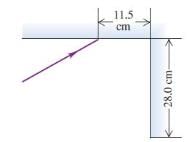
No force is exerted by a magnetic field on a stationary –
A wire 40 cm long carries a current of 20 A. It is bent into a loop and placed with its plane perpendicular to a magnetic field having a flux density of 0.52 T. What is the torque on the loop if it is bent into a square.
Calculate equivalent resistance when three resistances of 2 ohms, 3 ohms and 6 ohms are connected in parallel combination.
The phenomenon of diffraction can take place in sound waves?
A Plano convex lens of curvature of 30 cm & R.I. 1.5, produces a real image of an object kept 90cm from it. The magnification is
Consider a curved surface between two different media with refractive indices n1 = 1 and n2 = 2. The relation between radius of curvature, image distance and object distance is given by
An element has atomic number 79. Predict the group and period in which the element is placed.
In which of the following, the order is not in accordance with the property mentioned.
The alkaline hydrolysis of oils and fats is called:
When acids are dissolved in water, what ions do they produce?
Which of the following statement is always true when a substance undergoes physical change
Nitrogen and phosphorus belong to the group 15 of the periodic table. Which of these will be more electronegative?
An experiment involves rolling a pair of dice and recording the number that comes up. Suppose,
A: the sum is greater than 8.
B: 2 occurs on either die. Then A and B are ……. events.
The area bounded by the curve y = x3, the x – axis and two ordinates x = 1 and x = 2 is
The mean deviation about the mean for the following data:

Let R be a relation defined on the set of N natural numbers as R = {(x, y): y is a factor of x, x, y∈ N} then,
The area of a square that can be inscribed in a circle of radius 10cm is
If the plane 2x – y + z = 0 is parallel to the line then value of a
is
If A = {1, 3, 4} and B = {1, 4, 3, 2} then which of the following is true?



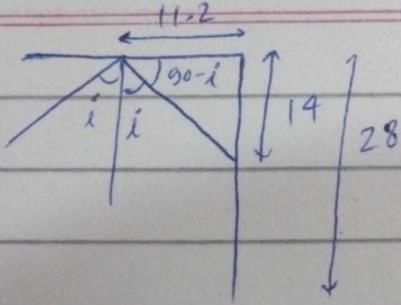
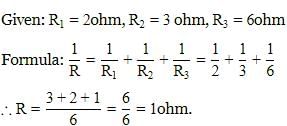
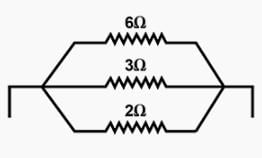
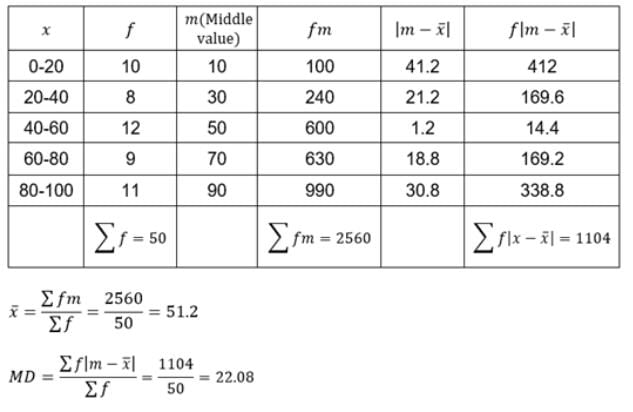




 is matrix and its transpose is
is matrix and its transpose is 
















